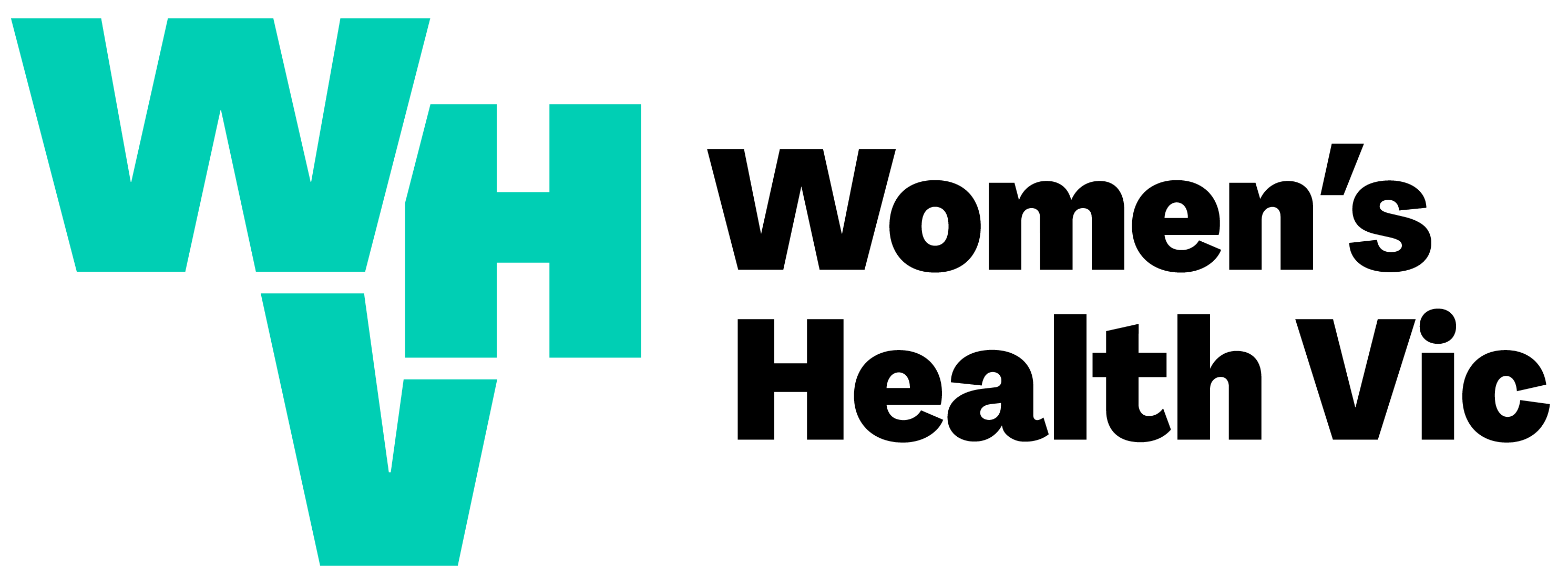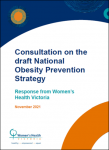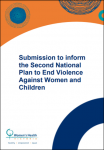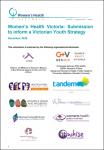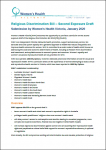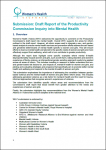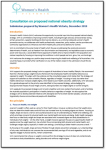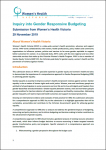Women’s Health Victoria (WHV) welcomed the opportunity to provide feedback to the draft National Obesity Prevention Strategy in November 2021.
This submission largely focuses on the primary prevention of men’s violence against women in line with the focus and expertise of WHV.
WHV’s submission focuses on young women’s mental health, physical health, sexual and reproductive health and the prevention of violence against women, drawing on our areas of expertise and highlighting the importance of promoting gender equality to address poor health outcomes across all these areas.
This submission to the Productivity Submission, written by Gender Equity Victoria (GENVic), Women in Adult and Vocational Education (WAVE) and the Gender Equity Accredited Training Project (WHV), specifically talks to issues relating to ‘options to ensure government investment in VET encourages increased participation in training by all Australians and is commensurate with the outcomes and benefits derived by individuals, business, industry, the local and national economy and society more generally.’
This submission, written by Gender Equity Victoria (GENVic), Women in Adult and Vocational Education (WAVE) and the Gender Equity Accredited Training Project (WHV), makes recommendations drawing on a wealth of evidence that supports that this is not possible until inequity in our society and economy is addressed – specifically gender equity.
This submission outlines the reasons WHV opposes the Religious Discrimination Bill.
Overall WHV supports the areas for reform outlined in the draft report. However, all reform areas need to integrate a sex- and gender-based analysis to ensure mental health services and prevention efforts address the sex-based and gendered determinants of mental health specific to women and girls.
Our submission to the National Obesity Strategy consultation recommends that the National Obesity Strategy adopts a weight-inclusive framework that emphasises health over weight, takes a gendered approach to health promotion and takes an active role in reducing weight stigma.
This submission draws on WHV's specialist expertise in gender equity and women's health to demonstrate the importance of a comprehensive approach to Gender Responsive Budgeting (GRB) in achieving gender equality.
WHV's submission, endorsed by multiple agencies, makes 26 recommendations regarding the content of the code of ethics and related practice notes.
